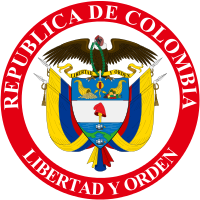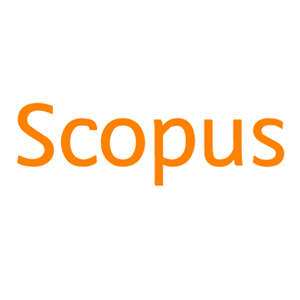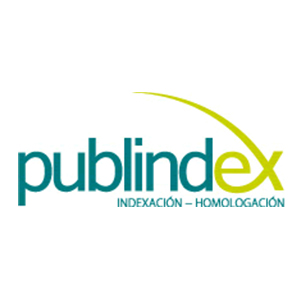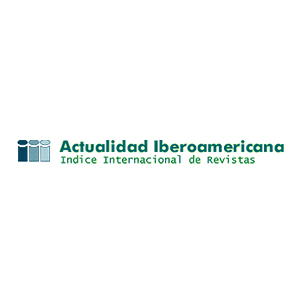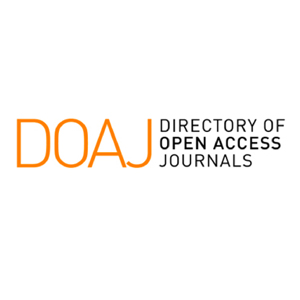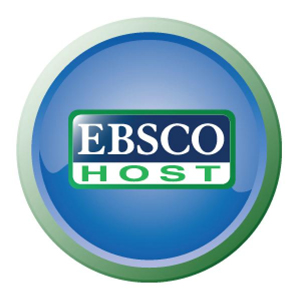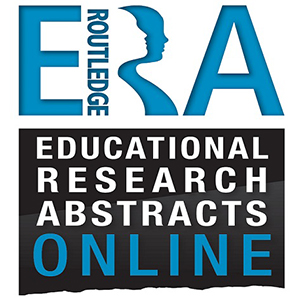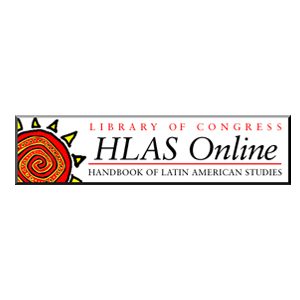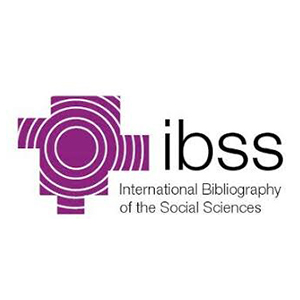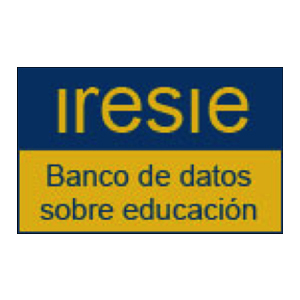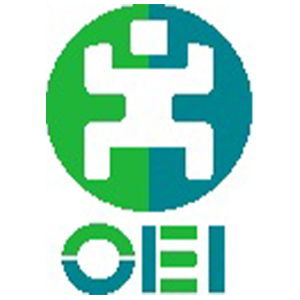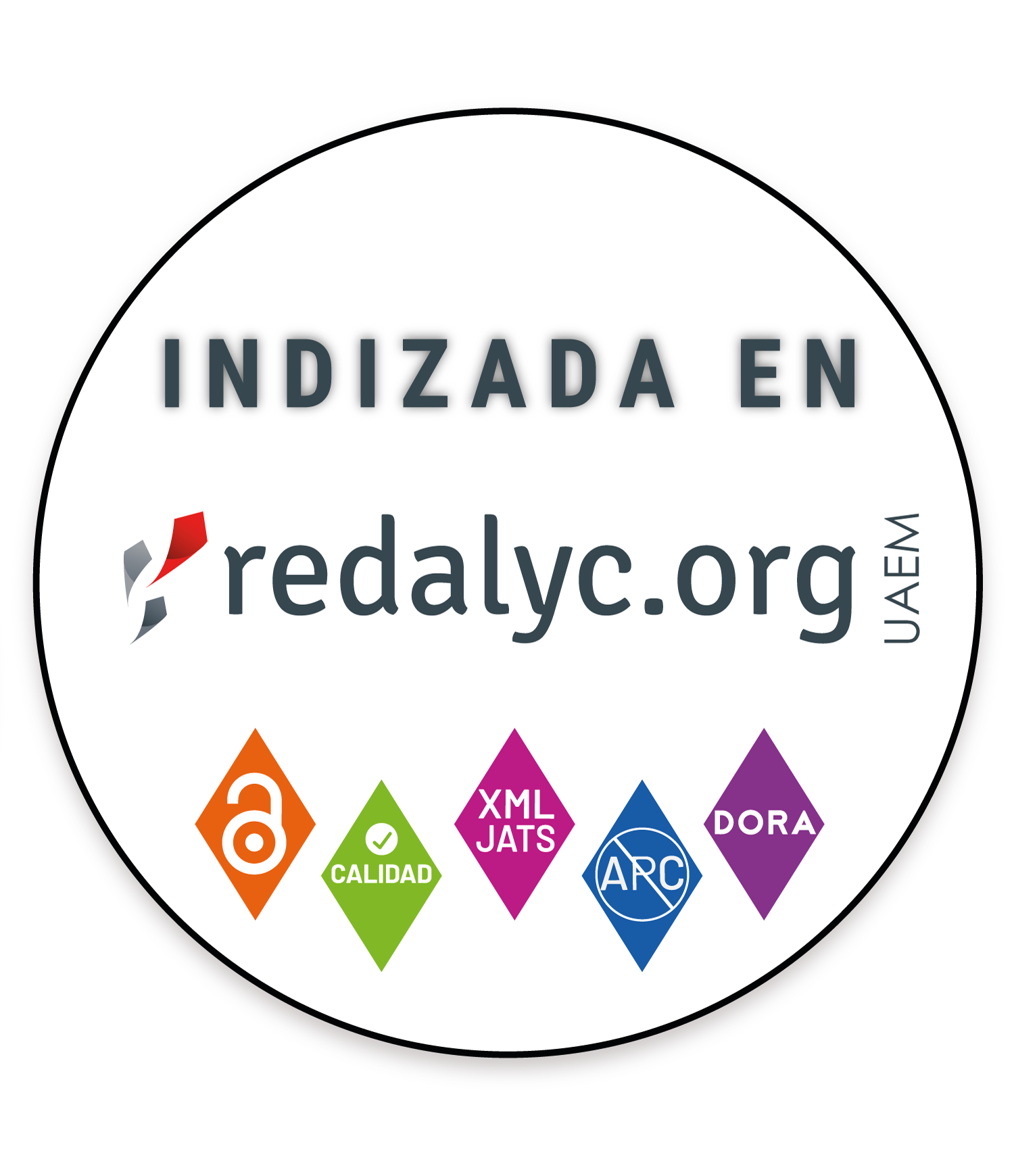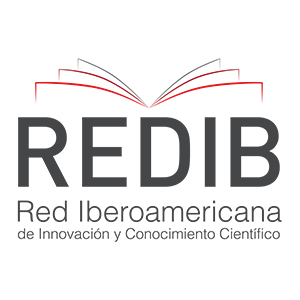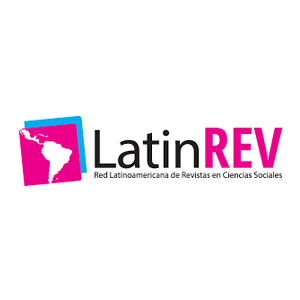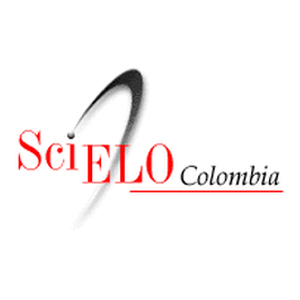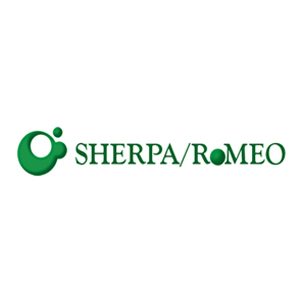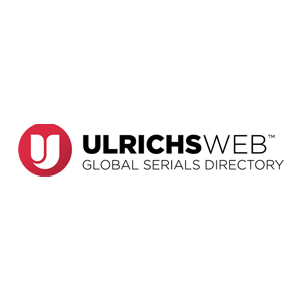Identities of Teacher Educators in Higher Education: A Literature Review
Identidades de los formadores de docentes en la educación superior: revisión bibliográfica
Identidades dos formadores de professores no ensino superior: uma revisão de literatura
En el campo de investigación sobre formadores de docentes existe una abrumadora panoplia de perspectivas, lo que requiere una organización meticulosa y un análisis más profundo. El objetivo general de este artículo es caracterizar los estudios sobre formadores de docentes. Concretamente, el artículo de revisión pretende identificar el papel que desempeñan los estudios sobre las identidades de los formadores de profesores en ese contexto más amplio. Se realizó una revisión de la literatura que cubre casi dos décadas de publicaciones. Primero, se identificaron los temas seleccionados, sus geografías y su evolución a lo largo del tiempo, lo que reveló la importancia del desarrollo profesional, que incluye el subtema de las identidades de los formadores de docentes. El análisis de contenido de los artículos relacionados con este subtema permitió identificar cuatro campos dinámicos: dos relacionados con las biografías y roles de los formadores de docentes; y otros dos, con los contextos más amplios y específicos del trabajo de los formadores de docentes.
formación del profesorado, identidad profesional, desarrollo profesional, revisión bibliográfica (es)
formação de professores, identidade profissional, revisão da literatura, desenvolvimento profissional (pt)
Avalos, B. (2011). Teacher professional development in teaching and teacher education over ten years. Teaching and Teacher Education, 27(1), 10-20. doi:10.1016/j.tate.2010.08.007. DOI: https://doi.org/10.1016/j.tate.2010.08.007
Barak, J., Gidron, A., & Turniansky, B. (2010). ‘Without stones there is no arch’: A study of professional development of teacher educators as a team. Professional Development in Education, 36(1-2), 275-287. doi:10.1080/19415250903457489. DOI: https://doi.org/10.1080/19415250903457489
Ben-Peretz, M., Kleeman, S., Reichenberg, R., & Shimoni, S. (2010). Educators of educators: Their goals, perceptions and practices.
Professional Development in Education, 36(1-2), 111-129. doi:10.1080/19415250903454908. DOI: https://doi.org/10.1080/19415250903454908
Boyd, P. (2010). Academic induction for professional educators: Supporting the workplace learning of newly appointed lecturers in teacher and nurse education. International Journal for Academic Development, 15(2), 155-165. doi:10.1080/13601441003738368. DOI: https://doi.org/10.1080/13601441003738368
Boyd, P., Allan, S., & Reale, P. (2010). Being a teacher educator: Pedagogy, scholarship and identity of lecturers in teacher education in further education workplace contexts. British Educational Research Association.
Boyd, P., & Harris, K. (2010). Becoming a university lecturer in teacher education: Expert school teachers reconstructing their pedagogy and identity. Professional Development in Education, 36(1-2), 9-24. doi:10.1080/19415250903454767. DOI: https://doi.org/10.1080/19415250903454767
Brody, D., & Hadar, L. (2011). “I speak prose and I now know it”: Personal development trajectories among teacher educators in a professional development community. Teaching and Teacher Education, 27(8), 1223-1234. doi:10.1016/j.tate.2011.07.002. DOI: https://doi.org/10.1016/j.tate.2011.07.002
Chetty, R., & Lubben, F. (2010). The scholarship of research in teacher education in a higher education institution in transition: Issues of identity. Teaching and Teacher Education: An International Journal of Research and Studies, 26(4), 813-820. doi:10.1016/j.tate.2009.10.018. DOI: https://doi.org/10.1016/j.tate.2009.10.018
Clandinin, D., Downey, C., & Huber, J. (2009). Attending to changing landscapes: Shaping the interwoven identities of teachers and teacher educators. Asia-Pacific Journal of Teacher Education, 37(2), 141-154. doi:10.1080/13598660902806316. DOI: https://doi.org/10.1080/13598660902806316
Cochran-Smith, M. (2003). Learning and unlearning: The education of teacher educators. Teaching and Teacher Education, 19(1), 5-28. doi:10.1016/S0742-051X(02)00091-4. DOI: https://doi.org/10.1016/S0742-051X(02)00091-4
Crook, D. (2012). Teacher education as a field of historical research: Retrospect and prospect. History of Education, 41(1), 57-72. doi:10.1080/0046760X.2012.649578. DOI: https://doi.org/10.1080/0046760X.2012.649578
Day, C. (2004). Change agendas: The roles of teacher educators. Teaching Education, 15(2), 145-158. doi:10.1080/1047621042000213584. DOI: https://doi.org/10.1080/1047621042000213584
Day, C. (2012). New lives of teachers. Teacher Education Quarterly, 39(1), 7-26. www.jstor.org/stable/23479560.
Day, C., Kington, A., Stobart, G., & Sammons, P. (2006). The personal and professional selves of teachers: Stable and unstable identities. British Educational Research Journal, 32(4), 601-616. doi:10.1080/01411920600775316. DOI: https://doi.org/10.1080/01411920600775316
Dinkelman, T. (2011). Forming a teacher educator identity: Uncertain standards, practice and relationships. Journal of Education for Teaching, 37(3), 309-323. doi:10.1080/02607476.2011.588020. DOI: https://doi.org/10.1080/02607476.2011.588020
Doecke, B. (2004). Professional identity and educational reform: Confronting my habitual practices as a teacher educator. Teaching & Teacher Education: An International Journal of Research and Studies, 20(2), 203-215. doi:10.1016/j.tate.2003.12.001. DOI: https://doi.org/10.1016/j.tate.2003.12.001
Dubar, C. (1995). La socialisation: Constructrion des identités sociales et profissionnelles. Armand Colin.
Field, S. (2012). The trials of transition, and the impact upon the pedagogy of new teacher educators. Professional Development in Education, 38(5), 811-826. doi:10.1080/19415257.2012.701658. DOI: https://doi.org/10.1080/19415257.2012.701658
Freidus, H., Baker, C., Feldman, S., Hirsch, J., Stern, L., Sayres, B., Sgouros, C., & Wiles Kettenmann, M. (2009). Insights into self-guided professional development: Teachers and teacher educators working together. Studying Teacher Education, 5(2), 183-194. doi:10.1080/17425960903306948. DOI: https://doi.org/10.1080/17425960903306948
Freire, P. (1997). Política e educação: Ensaios. Cortez.
Gee, J. P. (2000). Identity as an analytic lens for research in education. Review of Research in Education, 25(1), 99-125. doi:10.3102/0091732X025001099. DOI: https://doi.org/10.3102/0091732X025001099
Hamilton, M., & Clandinin, J. (2011). Unpacking our assumptions about teacher educators around the world. Teaching & Teacher Education, 27, 243-244. doi:10.1016/j.tate.2010.11.008. DOI: https://doi.org/10.1016/j.tate.2010.11.008
Holland, D., Lachicotte Jr., W., Skinner, D., & Cain, C. (1998). Identity and agency in cultural worlds. Harvard University Press.
Huber, E., Hoadley, S., & Wood, L. (2011). Teaching induction program: Framework, design and delivery. Asian Social Science, 7(11), 13-18. doi:10.5539/ass.v7n11p13. DOI: https://doi.org/10.5539/ass.v7n11p13
Hussein, J. (2007). Developing teacher educators: A technocratic rationality versus critical practical inquiry: The Ethiopian experience. Journal of In-Service Education, 33(2), 209-235. doi:10.1080/13674580701293051. DOI: https://doi.org/10.1080/13674580701293051
Jephcote, M., & Salisbury, J. (2009). Further education teachers’ accounts of their professional identities. Teaching and Teacher Education, 25(7), 966-972. doi:10.1016/j.tate.2009.05.010. DOI: https://doi.org/10.1016/j.tate.2009.05.010
Koster, B., & Dengerink, J. (2001). Towards a professional standard for Dutch teacher educators. European Journal of Teacher Education, 24(3), 343-354. doi:10.1080/02619760220128897. DOI: https://doi.org/10.1080/02619760220128897
Lawn, M. (2001). Os professores e a fabricação de identidades. Currículo sem Fronteiras, 1(2), 117-130. http://www.curriculosemfronteiras.org/vol1iss2articles/lawn.pdf.
Lopes, A., & Pereira, F. (2012). Everyday life and everyday learning: The ways in which pre-service teacher education curriculum can encourage personal dimensions of teacher identity. European Journal of Teacher Education, 35(1), 17-38. DOI: https://doi.org/10.1080/02619768.2011.633995
Many, J. E., Green, J., Wallace, F. H., Graham, M., Dixey, B., Miller, S., Myrcik, C. & Pendergraft, B. (2006). Understanding the impact of a state-wide reading consortium on literacy teacher educators. Reading Research and Instruction, 45(4), 319-352. doi:10.1080/19388070609558454. DOI: https://doi.org/10.1080/19388070609558454
Marcelo, C. (2009). Desenvolvimento profissional docente: Passado e futuro. Sísifo: Revista de Ciências da Educação, 8, 7-22. http://sisifo.ie.ulisboa.pt/index.php/sisifo/article/view/130.
Mckeon, F., & Harrison, J. (2010). Developing pedagogical practice and professional identities of beginning teacher educators. Professional Development in Education, 36(1-2), 25-44. doi:10.1080/19415250903454783. DOI: https://doi.org/10.1080/19415250903454783
Merton, R. (1968). Social theory and social structure (3.rd ed.). Free Press.
Murray, J., Czerniawski, G., & Barber, P. (2011). Teacher educators’ identities and work in England at the beginning of the second decade of the twenty-first century. Journal of Education for Teaching: International Research and Pedagogy, 37(3), 261-277. doi:10.1080/02607476.2011.588014. DOI: https://doi.org/10.1080/02607476.2011.588014
Murray, J., & Male, T. (2005). Becoming a teacher educator: Evidence from the field. Teaching and Teacher Education, 21(2), 125-142. doi:10.1016/j.tate.2004.12.006. DOI: https://doi.org/10.1016/j.tate.2004.12.006
Nias, J. (1981). “Commitment” and motivation in primary school teachers. Educational Review, 33(3), 181-190. doi:10.1080/0013191810330302. DOI: https://doi.org/10.1080/0013191810330302
Nias, J. (1989). Primary teachers talking: A study of teaching as work. Routledge.
Niesz, T. (2010). Chasms and bridges: Generativity in the space between educators’ communities of practice. Teaching and Teacher Education, 26(1), 37-44. doi:10.1016/j.tate.2009.06.015. DOI: https://doi.org/10.1016/j.tate.2009.06.015
Richter, D., Kunter, M., Klusmann, U., Lüdtke, O., & Baumert, J. (2011). Professional development across the teaching career: Teachers’ uptake of formal and informal learning opportunities. Teaching and Teacher Education, 27(1), 116-126. doi:10.1016/j.tate.2010.07.008. DOI: https://doi.org/10.1016/j.tate.2010.07.008
Robinson, M. (2003). Teacher education policy in South Africa: The voice of teacher educators. Journal of Education for Teaching, 29(1), 19-34. doi:10.1080/0260747022000057954. DOI: https://doi.org/10.1080/0260747022000057954
Robinson, M., & McMillan, W. (2006). Who teaches the teachers? Identity, discourse and policy in teacher education. Teaching and Teacher Education, 22(3), 327-336. doi:10.1016/j.tate.2005.11.003. DOI: https://doi.org/10.1016/j.tate.2005.11.003
Sachs, J. (2001). Teacher professional identity: Competing discourses, competing outcomes. Journal of Education Policy, 16(2), 149-161. doi:10.1080/02680930116819. DOI: https://doi.org/10.1080/02680930116819
Sachs, J. (2003). The activist professional. Open University Press.
Santos, B. S. (1995). Toward a new common sense: Law, science and politics in the paradigmatic transition. Routledge.
Schofer, E., & Meyer, J. W. (2005). The worldwide expansion of higher education in the twentieth century. American Sociological Review, 70(6), 898-920. doi:10.1177/000312240507000602. DOI: https://doi.org/10.1177/000312240507000602
Smith, K. (2003). So, what about the professional development of teacher educators? European Journal of Teacher Education, 26(2), 201. doi: 10.1080/0261976032000088738. DOI: https://doi.org/10.1080/0261976032000088738
Stryker, S. (1997). In the beginning there is society: Lessons from a sociological social psychology. In C. McGarty & S. A. Haslam (Eds.), The message of social psychology: Perspectives on mind in society (pp. 315-27). Blackwell.
Stryker, S., & Serpe, R. (1994). Identity salience and psychological centrality: Equivalent, overlapping or complementary concepts? Social Psychological Quarterly, 57(1), 16-35. doi:10.2307/2786972. DOI: https://doi.org/10.2307/2786972
Swennen, A., Jones, K., & Volman, M. (2010). Teacher educators: Their identities, sub-identities and implications for professional development. Professional Development in Education, 36(1), 131-148. doi:10.1080/19415250903457893. DOI: https://doi.org/10.1080/19415250903457893
Swennen, A., Volman, M., & van Essen, M. (2008). The development of the professional identity of two teacher educators in the context of Dutch teacher education. European Journal of Teacher Education, 31(2), 169-184. doi:10.1080/02619760802000180. DOI: https://doi.org/10.1080/02619760802000180
Timmerman, G. (2009). Teacher educators modelling their teachers? European Journal of Teacher Education, 32(3), 225-238. doi:10.1080/02619760902756020. DOI: https://doi.org/10.1080/02619760902756020
Torres, R. M. (2004). Nuevo rol docente: ¿Qué modelo de formación, para qué modelo educativo? Revista Colombiana de Educación, 47. doi:10.17227/01203916.5512. DOI: https://doi.org/10.17227/01203916.5512
Vloet, K., & van Swet, J. (2010). ‘I can only learn in dialogue!’: Exploring professional identities in teacher education. Professional Development in Education, 36(1-2), 149-168. doi:10.1080/19415250903457083. DOI: https://doi.org/10.1080/19415250903457083
Welmond, M. (2002). Globalization viewed from the periphery: The dynamics of teacher identity in the Republic of Benin. Comparative Education Review, 46(1), 37-65. doi:10.1086/324049. DOI: https://doi.org/10.1086/324049
Wenger, E. (1998). Communities of practice: Learning, meaning, and identity. Cambridge University Press. DOI: https://doi.org/10.1017/CBO9780511803932
Yuan, R. (2016). Understanding higher education-based teacher educators’ identities in Hong Kong: A sociocultural linguistic perspective. Asia-Pacific Journal of Teacher Education, 44(4), 379-400. doi:10.1080/1359866X.2015.1094779. DOI: https://doi.org/10.1080/1359866X.2015.1094779
Zhu, H. (2010). Curriculum reform and professional development: A case study on Chinese teacher educators. Professional Development in Education, 36(1-2), 373-391. doi:10.1080/19415250903457604. DOI: https://doi.org/10.1080/19415250903457604
APA
ACM
ACS
ABNT
Chicago
Harvard
IEEE
MLA
Turabian
Vancouver
Descargar cita
Citaciones

Métricas PlumX
Visitas
Descargas
Recibido: 2 de febrero de 2021; Aceptado: 5 de octubre de 2021
Abstract
Within the research field on teacher educators there is an overwhelming array of perspectives, which requires meticulous organization and deeper analysis. The general goal of this article is to characterize research studies on teacher educators. More specifically, the article intends to identify the role played by the studies on teacher educators' identities in that broader context. A literature review covering almost two decades of publications was conducted. First, the authors identified the selected themes, their geographies and their evolution throughout time, revealing the importance of Professional Development, a topic which includes the subtopic of teacher educators' identities. The content analysis of the articles related to this subtopic made it possible to identify four dynamic fields: two related with teacher educators' biographies and roles; and the others, connected with both the broader and specific contexts of teacher educators' work
Keywords:
teacher education, professional identity, literature review, professional development.Resumo
No campo da investigação da formação de professores, no que se refere aos formadores de professores, existe uma panóplia de perspetivas, situação que requer uma organização cuidadosa e uma análise mais aprofundada. O objetivo geral deste artigo é caracterizar os estudos sobre os formadores de professores. Mais especificamente, o artigo visa identificar o papel que os estudos sobre as identidades dos formadores de professores desempenham nesse contexto mais amplo. Por esta razão, realizou-se uma revisão da literatura que abrange quase duas décadas de publicações, onde foram identificados temas selecionados, suas geografias e sua evolução ao longo do tempo, revelando a importância do tema de Desenvolvimento Profissional, que inclui o subtema das identidades dos formadores de professores A análise de conteúdo dos artigos relacionados a esse subtema permitiu identificar quatro campos dinâmicos: dois relacionados às biografias e papéis dos formadores de professores; e dois outros relacionados aos contextos mais amplos e específicos do trabalho dos formadores de professores.
Palavras-chave:
formação de professores, identidade profissional, revisão da literatura, desenvolvimento profissional.Resumen
En el campo de investigación sobre formadores de docentes existe una abrumadora panoplia de perspectivas, lo que requiere una organización meticulosa y un análisis más profundo. El objetivo general de este artículo es caracterizar los estudios sobre formadores de docentes. Concretamente, el artículo de revisión pretende identificar el papel que desempeñan los estudios sobre las identidades de los formadores de profesores en ese contexto más amplio. Se realizó una revisión de la literatura que cubre casi dos décadas de publicaciones. Primero, se identificaron los temas seleccionados, sus geografias y su evolución a lo largo del tiempo, lo que reveló la importancia del desarrollo profesional, que incluye el subtema de las identidades de los formadores de docentes. El análisis de contenido de los artículos relacionados con este subtema permitió identificar cuatro campos dinámicos: dos relacionados con las biografías y roles de los formadores de docentes; y otros dos, con los contextos más amplios y específicos del trabajo de los formadores de docentes.
Palabras clave:
formación del profesorado, identidad profesional, revisión bibliográfica, desarrollo profesional.Introduction
The issue of teacher education was practically non-existent in educational publications until 1970; it then increased a little in the 1980s, peaked in the 1990s, and has kept its interest since. Meanwhile, studies on teacher educators (TES) have flourished in recent years (Crook, 2012).
The inclusion of teacher education programmes in higher education institutions (Schofer & Meyer, 2005) and the awareness of the importance of teacher education for school education in general led to a greater focus on TES and their professional learning paths (Koster & Dengerink, 2001). Among other factors motivating studies on TES, the following seem to stand out: the diversified nature and complexity of their role (Robinson, 2003); the need to "denaturalize" perceptions of the teaching function in higher education (Smith, 2003); and the production of contributions to the development of policies capable of promoting professional development of TES that is consistent with current educational demands (Cochran-Smith, 2003; Hussein, 2007; Many et al., 2006; Robinson, 2003). Indeed, teacher education programmes have been regarded as responsible for improving the quality of education in different contexts (Cochran-Smith, 2003; Hussein, 2007; Many et al., 2006; Robinson, 2003).
However, research on TES faces a number of obstacles and challenges, among which the varying access conditions for the job from one country to another, often linked to different education and training systems, stands out. In fact, there is no universal definition of how to become a TE or of who can do it. This diversity demands special attention, as research findings of a specific context cannot be used to understand other contexts (Hamilton & Clandinin, 2011).
In addition to this diversity, and to the multiplicity of educational and teacher education systems (Torres, 2004), there are conceptual and theoretical benchmarks for TE studies, among which the identity of TES is of particular importance. Even though, the extent to which the concept of identity makes it possible to understand the processes of becoming and being a TE is precisely one of the obstacles to the studies on TES' identities, as there are diverse points of view to be taken into consideration when one chooses the concept of identity as a benchmark. This set of conditions associated with the increase in the number of studies on TES over the last few years makes it appropriate to draw up a literature review to guide and inspire future studies and publications.
This paper presents a review of literature on TES, referring to articles published between the years 2000 and 2019. The review was conducted with two specific goals: to provide a general picture of studies concerning TES and to analyse the characteristics of the studies that, within those, were inspired by the concept of identity. The article starts by presenting the procedure used for the selection and collection of literature. Then, the authors present the findings resulting from the first stage of analysis. In this stage, it is possible to identify specific topics, their geographies and their evolution throughout time. In the second phase, the researchers put forth a description of the content of the articles related to the "Professional development" theme-one hundred articles, including those approaching professional identities. The third stage accounts for the analysed content of the articles in regard to the "TES' professional identity" sub-theme, describing, in each case, the goals that inspired the papers, their main authors and the methods used, as well as their findings. The article ends by summing up the results of the analyses and subsequently proposing new paths for further research.
Methodology
This literature review encompasses complete articles published from 2000 to 2019. The articles were searched for on the EBscohost (Academic Search Ultimate, Education Research Complete, Educational Resource Information Center, and Teacher Reference Center), Web of Science, and Scopus databases, using the keywords "teacher educator" in the title and "higher education" in "subject terms". Articles lacking enough information for classification, or with titles focusing on specific fields of knowledge were excluded.
First, the authors read the abstracts of all the identified articles (245) and classified them using NVivo12. This allowed the identification of the following themes: Practices and Knowledge; Curricula, Policies, and Reforms, Professional Development, Educators in relation to Technology; Multiculturalism and Diversity; Ethical and Philosophical Issues; and School/University Relation.
In this stage, information regarding the number of publications by national provenance of the first author and date of publication was taken into consideration. Countries with less than five publications were assembled in a group titled Others. Regarding the date of publication, different time periods were established: between 2000 and 2005, 2006 and 2010, 2011 and 2015 and, finally, between 2016 and 2019.
In the second stage, the researchers carried out a more thorough analysis of the articles within the Professional Development theme-the one with the biggest number of selected articles (100). Sub-themes were identified and associated with their national provenance and publication date, and their content described. The two sub-themes with the biggest number of selected articles were "Articulating teaching and research" (25 articles) and "TES' professional identities" (24 articles).
Finally, a content analysis of the 24 articles included in the "Professional Identity of TES" sub-theme was undertaken, and a subsequent description of the main inspiring authors, theoretical perspectives, and findings in each identified dimension was put forth.
Studies on TES from 2000 to 2019
There are two main dynamic centres publishing articles with TE-related themes: the United States and the United Kingdom, followed by the Netherlands and Israel (table 1).
Note.
a
Spain (1), Norway (1), Ethiopia (2), Sweden (4), Brazil (2), Austria (1), Taiwan (1), Philippines (1), Malaysia (3), Singapore (1), Portugal (1), Belgium (2), Saudi Arabia (1), Fiji Islands (2), Finland (1), Pakistan (1), Ukraine (1), Serbia (2), China (1)
Source: Authors' own elaboration.
Table 1:
Number of publications per country
After organizing the articles according to publication dates and to the countries of the first authors it was possible to identify a considerable increase in the number of studies on TES published between 2006 and 2010. This increase is most clear in the United States and in the United Kingdom. On the contrary, in the Netherlands a significant decrease in the number of publications was identified between the years 2011 and 2015.
Note.
a
Spain, Norway, Ethiopia, Sweden, Brazil, Austria, Taiwan, Philippines, Malaysia, Singapore, Portugal, Belgium, Saudi Arabia, Fiji Islands, Finland, Pakistan, Ukraine, Serbia, China
Source: Authors' own elaboration.
Table 2:
Number of articles per country and period of publication
Table 3 presents the number of articles related to each theme and their respective publication date. Once again, it is possible to conclude that the number of published articles has generally been growing exponentially during the second half of the first decade of the twenty-first century. The total number of publications per theme shows a predominance of Professional Development-related articles, followed by those within the "Practices and Knowledge" theme.
Source: Authors' own elaboration.
Table 3:
Number of articles per theme and period of publication
The professional development of TES
Professional development is a complex process, requiring cognitive and emotional investment, as well as individual, collective, and social involvement. It takes place in both formal and informal contexts, inside and outside teaching spaces, being that it happens not at a specific or certain period of time but, rather, throughout an entire teaching career (Avalos, 2011; Barak et al., 2010; Brody & Hadar, 2011; Marcelo, 2009; Richter et al., 2011; Zhu, 2010). It is a holistic process, intertwined with teachers' lives. The main issues are not only epistemological in nature, but also ontological, considering who the educators should be and what sort of identities they are developing. Furthermore, professional development is a horizontal process of growth, of understanding and expanding knowledge, not a vertical process of increasing and accumulating knowledge (Barak et al., 2010). In this sense, it is synonymous with professional learning.
Generally, the number of studies devoted to issues related to professional development has increased (Barak et al., 2010; Brody & Hadar, 2011; Freidus et al., 2009; et al., 2011; Smith, 2003), especially in the field of TES (table 3).
Table 4 focuses on professional development, taking into consideration the publication dates of the articles, the geographical origin of the first author, and the sub-themes that were identified: Professional identities of TES; Career induction of TES; Preparation of TE; General aspects; and Articulating teaching and research.
Source: Authors' own elaboration.
Table 4:
Number of articles per theme and period of publication
The sub-theme "General aspects" comprises articles dealing with TES' professional development in a general way. "TES' preparation" consists of articles discussing curricula, syllabi, and projects aiming to prepare and assist TES at the onset of their careers when they are teaching. "TES' career induction" comprises articles dealing with issues specifically connected with the process of becoming a TE. "Articulating teaching and research" includes articles dealing with the articulation between the roles of teacher and researcher, both tasks expected to be performed by TES in the context of higher education. The sub-theme "TES' professional identities" is composed of articles discussing the constitution of TES' identity. The next section analyses the twenty-four articles that comprise this sub-theme.
TES' Professional Identities
The professional development of TES is especially related to their professional identities, to the ways TES define themselves and others, and to the ways they are defined by others. The professional self is formed in a continuum, influenced by work and socio-political contexts, as well as by the individual's own biography-where personal commitment, availability to learn and teach, beliefs, values, knowledge of one's specific subject discipline, and one's relationships with colleagues, students and society are inscribed (Day, 2012; Day et al., 2006; Marcelo, 2009). The constitution of a professional identity results from the systematic interaction between political, cultural, social and institutional scenarios, and personal beliefs, wishes and fears (Day, 2012; Lopes, 2009; Lopes & Pereira, 2012).
The global analysis of the articles addressing this sub-theme led to organize them according to four thematic axes:
» From schoolteacher to TE: the articles discuss the process of becoming a teacher in higher education, after vast experience as a schoolteacher.
» TES and research: these papers focus on the relation TES establish with the research role as teachers in a career in higher education.
» TES in a context of change: these texts analyse the development of TES' professional identities in the context of changes at macro level, challenging the teaching profession.
» TES and interactive processes, connected mainly with situated relational processes influencing professional identity formation.
From schoolteacher to TE
Regarding the concepts of professional identity and the main authors inspiring the argument in this set of articles, there are two clear views. The first one is mainly based on E. Wenger (1998) and on the concept of communities of practice in the perspective of the development of professional identities (Boyd, 2010; Boyd & Harris, 2010; McKeon & Harrison, 2010; Swennen et al., 2008). The second one is based on the idea of professional identity as a process of socialization as described by Day (2004, 2012), Nias (1981, 1989), and Merton (1968) (eg. Field, 2012; Murray & Male, 2005; Murray et al., 2011; Timmerman, 2009). The transition of schoolteachers to higher education can be seen as a "state of becoming". They reconstruct their identities in the context of their activities at the new workplace. The adjustment process demands the existence of "models" provided by a community with "paradigmatic trajectories", represented by the more experienced members of a department, who establish the possibilities for the new educators to develop their own professional identity. The exposure to such paradigmatic trajectories can be the most influential learning factor for newcomers, providing a proposal of identity (Boyd, 2010; Boyd & Harris, 2010).
The workplace is a place where communities of practice are developed, and a significant context to foster professional identities (McKeon & Harrison, 2010; Swennen et al., 2008, 2010). Swennen et al. (2008, 2010), add to Wenger's contribution on communities of practice the view of a "metaphorical world", as described by Holland et al. (1998). According to these authors, each individual lives in several worlds, more or less separated and socially and culturally constructed, which include family, groups of friends, and school or professional organization, and thus implicate biographical data. Professional identity (constantly in motion) is a mixture of personal biography, culture, and social influence, as well as institutional values that may change according to roles and circumstances (Field, 2012; Murray & Male, 2005; Murray et al., 2011).
The aforementioned studies are based on a concept of professional identity strictly connected with practice, experience, and professional learning. The importance of the context of professional performance and the workplace, basically represented by communities of practice (where more experienced colleagues perform an important role) is therefore emphasized (Boyd, 2010; Boyd & Harris, 2010; McKeon & Harrison, 2010), as well as the general processes of socialization in the context of professional performance (Field, 2012; Murray & Male, 2005; Murray et al., 2011; Swennen et al., 2008; Timmerman, 2009). Nonetheless, the contextual dimension is seen as a place for the development of professional identities in transition, requiring the biographical dimension of the self. In line with the identity process described by Dubar (1995), these articles-albeit focusing on the relational transaction, in order to show how one can contribute to the promotion of the development of identity-invest in an idea of identity centred on biographical transition, i.e., on identity as personal trajectory.
The main conclusion of these studies is that the professional identities of teachers who are starting their careers in higher education -and who had previous well-defined identities when they were working at other levels of education- face a number of challenges and tensions of a diverse nature, especially concerning the process of adapting older identities to new ones. The transition is challenging and confusing, as it deals with issues such as what a teacher should be, the value of abstract knowledge in comparison with work based on practice, the development of a specific pedagogy related to teaching in higher education, and active participation in research (Boyd, 2010; Boyd & Harris, 2010; Field, 2012; Murray & Male, 2005). In general, it seems like TES, instead of adopting new identities as professional academics -as is often encouraged by the departments to which they belong-, tend to maintain their identities as schoolteachers, mainly due to the lack of efficient induction programs (Boyd, 2010; Boyd & Harris, 2010; Boyd et al., 2010).
McKeon and Harrison (2010) also make reference to a conflict in the formation of educators' identities regarding the transition from schools to higher education institutions. This study indicates that these teachers are at the same time beginners and experts, and are exposed to high expectations on the part of their colleagues in regard to their work. The identities of TES as schoolteachers are clearly moulded by their personal biographies and personalities, as well as by the experiences they lived in their former workplaces. This informs the educators' identities and tends to influence them to reach particular conclusions, participate in a number of activities, make certain specific choices, and value certain experiences. It is important to facilitate the process of their engagement in specific projects; and to assist them in their access to communities of practice while negotiating their new role.
The study by Swennen et al. (2008) identifies professional identities initially connected with the development of a set of knowledge and skills indispensable to TES' work through teaching experience. As time goes by, TES get more and more involved in the development of their education institute and start seeking professional development activities outside their institution. They become more experienced by taking part in TE networks and by working with colleagues at other institutes. McKeon and Harrison (2010) -who agree with Wenger (1998) in this matter- have also identified a "logic of adhesion", i.e., a process of conciliation between their identities and various forms of participation in different communities. Timmerman (2009) identifies in TES some resemblances to the models of high school teachers. However, such models are eventually replaced by the TES' personal characteristics, developed during their professional career.
In sum, identity -frequently presented as "once upon a time, there was an elementary school teacher"- suffers changes with the start of a new career in the university, giving rise to a reconstruction in accordance with the new experience as a TE, and also with the commitment to research. This process, as will be discussed in the next section, is not always immune to being confronted by resistance (Field, 2012; Murray et al., 2011).
TES and research
The articles included in this axis focus on how TES deal with research as a constitutive element of a TE'S identity, an issue connected with the new demands of the teaching role in higher education (Robinson & McMillan, 2006), and to the context of teaching reforms (Chetty & Lubben, 2010).
"Who am I in the present circumstances?" and "What defines me as a TE here and now?" are questions present in the discussion about identities in the study by Chetty and Lubben (2010). In order to answer these questions, these authors resort mainly to Gee (2000), Stryker (1997), and Stryker and Serpe (1994), and to their theories on "situated identities" and "relevant identities." Identity is seen as socially constructed, in a process comprising tensions between different identities in contexts of change. The existence of opposing identities triggers the more relevant ones. This happens through the internal desire to attribute familiarity and meaning to the new identity and through external conditions that lower the social and personal cost implied in the process of giving up previous identities.
The identities that TES build for themselves are crucial in order to achieve innovation in a changing environment. In reference to Welmond (2002), Robinson and McMillan (2006) state that TES take their preferences and ambitions with them through the processes of change. They also claim that the juxtaposition of different views on educators concerning the role they are expected to fulfil has serious consequences when implementing changes.
These research studies seem to lead to a greater emphasis on identity constructions originated by working contexts. These contexts are now perceived as "situations", i.e., as sources of identification and decisive attribution in processes of acknowledgment. These studies focus -more than the ones in the previous axis- on the interaction between people and contexts. In order to expand on the development of identity, synchronicity -multiple identities, often competing in the same situation- is the focus, not diachronic sequences of situations/contexts in time as found in the previously analysed dimension. The incorporation of the research role in current identities is a good example of this process.
Findings indicate that institutional policies or deliberated changes are not enough to draw the educators' attention to the importance of research. Thus, any process of change needs to consider TES' attitudes and motivations (Chetty & Lubben, 2010; Robinson & McMillan, 2010). The majority of educators consider teaching and research as dichotomous elements, and research activities are seen as a way to satisfy institutional requirements for the acquisition of financial support and to produce publications (Chetty & Lubben, 2010), not as means for professional development.
Robinson and McMillan (2010) found evidence that, contradicting speeches in favour of the constitution of researcher identities, educators often prefer to maintain their identity as teachers, which does not necessarily contradict an identity of researcher-educator. They put forth the idea that research and reflection can be vital elements in TES' development processes, allowing them to become capable of questioning their own subjects, the political frames in which they are inserted, and the complex social conditions of education. In other words, educators who acquire a more profound knowledge of their students and their workplace through research and reflection can contribute, in a sustained and significant way, to the production of knowledge related to education as a whole, and in particular to producing knowledge regarding teaching and learning processes.
TES in a context of change
The first aspect to be analysed in these articles refers to the types of contexts of change regarded as playing a role in the discussions about professional identities. To Clandinin et al. (2009), change is to be understood in terms of transformations in the educational landscape that occur as a result of globalization, processes of migration, economic inequality, and environmental changes. Day (2004), Jephcote and Salisbury (2009), Yuan (2016), and Vloet and van Swet (2010) studied changes that occurred in social, economic, and political contexts. The changes that occur in the professional field of teaching associated with identity are also discussed by Day (2004), Doecke (2004), and Vloet and van Swet (2010).
The concept of identity in Clandinin et al. (2009) comprises both personal and social aspects and is intimately connected with knowledge; it results from the dialectics between the teachers' personal knowledge and their social contexts. For these authors, the stories told by teachers provide information on who they are and on which direction they are growing towards as teachers, taking into consideration their individual lives, which are made up of multiple plots. Stories lived by teachers in the context of unstable educational landscapes configure their knowledge and identity. Vloet and van Swet (2010) discuss the constitution of identities in a similar perspective. These authors perceive the formation of identities, from both a psychological and social perspective, as a dynamic process where professionals interpret and reinterpret their biographical experiences and their significant practices through interaction with context. The authors also acknowledge the existence of sub-identities that can be more or less in harmony with each other and highlight the need to consider emotions as being as important as -or even more important than- cognitive aspects.
The mobilization of identities in response to larger contextual changes occurs along the space of "structure", i.e., relations of power and status, and the space of "action" (agency). The connection between teachers' private lives and the personal and biographical aspects of their careers, as well as the ways in which those elements intersect, constitute their thoughts, professional actions, and identities (Day, 2004; Jephcote & Salisbury, 2009; Yuan, 2016). Connected with the concept of identity is self-efficiency and, associated with it, commitment (Day, 2004). Reflections on teaching -which involves intellect, action and emotion- cannot be restricted to the classroom, especially in a context of relevant change. This idea leads Day to Sachs (2003) and to the distinction she makes between the entrepreneurial professional identity and the activist professional identity. The entrepreneurial professional identity is associated with efficiency and with compliance to what has been externally imposed. It is an individualistic, competitive, controlling, and regulating identity. The activist identity is guided by the teachers' convictions and by the mobilization of their best interests to improve the students' learning process and the conditions in which it occurs.
In this set of articles, the issue of identities is discussed (more so than in the other groups) regarding a broader social and political context (macro level). Thus, the concepts of identity presented refer not only to identities induced by that context -entrepreneurial identities-, but also to ways of resisting those policies- like Sachs' (2001) activist identity. AS such, the development of the educators' identities is linked to their perception of the teaching profession, of its specificities (such as the feeling of self-efficiency, emotion, and commitment) and of professionalism, this analysis revealing a clear political position. The need to study identities according to narrative processes is present in all the articles, the method itself being regarded as a way of resistance.
To Clandinin et al. (2009), TES have the responsibility to pay attention to the changes that may occur in the educational landscape in order to work with future teachers and create spaces for a change of practices, such as collaborative communities of research, learning communities, and spaces for self-study. These are relational, temporal, imaginative spaces, historically described. They are spaces for research, capable of promoting networks to assist teachers working in contexts of change. In their study, Vloet and van Swet (2010) assert the efficiency of biographical narratives as a way to absorb the complex dynamics entailed in the formation of professional identities. To these authors, the significant experiences of educators can be portrayed in a systematic way, by using identity components such as motivation during work, perceptions and feelings about one's role, self-image and feelings about oneself.
At the core of Day's arguments is a defence of the development of an activist identity. According to the author, more important than the new demands made of teachers (and consequently, of TES) present in several documents, which suggest specific patterns, is the need for educators to create a passionate engagement with their job. In other words, they must keep a continuous commitment, always do their best, and also understand teacher education as a moral enterprise. To the author, the best teachers are the ones with a higher level of intellectual and moral commitment, not only toward their fields of knowledge, but also toward their students and their context. Jephcote and Salisbury (2009) (who also focus on the issue of the new demands presented to TES, especially in terms of performance pressure) advance the idea that the changes implicated in this process destabilize the educators' work, even if they remain committed to satisfying their students' needs and interests. Therefore, if, on the one hand, educators are increasingly victims of established patterns and norms, on the other hand, they are agents in the process of constructing their professional identity in a more significant way, especially regarding their students' needs and interests. As such, classroom interactions can (to the vast majority of educators) be crucial for the construction and reconstruction of professional identities (Jephcote & Salisbury, 2009).
Summarizing, the studies in this axis that include the element of "change" share, in methodological terms, the same narrative perspective and highlight collaborative spaces, an intellectual and moral commitment, a commitment towards students and the narrative-biographical process as important elements in the construction of professional identities and teachers' professionalism.
TES and interactive processes
Ben-Peretz et al. (2010) and Niesz (2010) look to Sachs (2001) and Wenger (1998) in order to discuss the dynamics of the formation of professional identities as a relevant element in TES' professional development processes. The authors highlight two dimensions: identity constructed in relation to the participation in communities of practice, and identity as a learning trajectory, in accordance with the idea of a close connection between identity and practice (Wenger, 1998). In Sachs, the authors look for arguments to prove the importance of self-narratives and participation in communities of practice as privileged strategies to develop the professional identities of TES. Swennen et al. (2010), in a similar and complementary approach, quote the conception of professional identity as described by Holland et al. (1998). It is a conception of identities as socially constructed selves that manifest themselves in "figurative worlds". The authors associate this idea with the notion of communities of practice defined by Wenger (1998).
The analytical model developed by Gee (2000) serves as theoretical support for the analysis conducted by Dinkelman (2011). According to that model, identities can be seen in relation to four intersecting perspectives, namely, the nature perspective (identity emerging from forces of nature), the institutional perspective (identity set by authorities within an institution), the discursive perspective (identity defined by practices and dialogue with others), and the affinity perspective (identity related to loyalty toward group affiliation perspectives). In his self-study, Dinkelman (2011) emphasizes the importance of the discursive and affinity perspectives to discuss the construction of his own professional identity.
These studies, despite focusing on different subjects -programs for professional development and the identification of sub-identities within literature on TES- present a common perspective on professional identities. This common element is the vital role of the communities of practice and of the relationships established with those involved in the teacher education context. This way, emphasis is placed on the relational dimension of identity construction. Other studies also highlight, within this theoretical frame, the discursive and the affinity perspectives: they include issues related to practice, to dialogue with colleagues, and to affiliations with different communities of practice.
From the conceptual point of view, this set of articles gathers aspects that are also considered in those included in the first and second axes of analysis. However, they do not mention the identity transition from being a teacher to being a TE and a researcher. They offer a much more general approach to the communicational conditions that promote the development of identities. For that reason, in this group of articles, the goal of identity formation is mainly focused on the micro and meso levels of the promotion of professional development.
The Ben-Peretz et al. (2010) research study results in arguments favorable to the promotion of professional identities in communities of practice, regarded as spaces for learning and sharing experiences. There are no references to specific TES' identities. Dinkelman (2011) also recognizes the importance of communities of practice by highlighting -in his own experience- the conceptual characteristics of the TE program, which he considers a structural aspect. In his trajectory, the author underlines the construction of a professional identity when teaching is associated with research. This association is shaped by externally established teaching patterns, by relations of acknowledgment, and by collaboration with colleagues and student teachers.
Conclusion
The general goal of this article was to characterize research studies on teacher educators. More specifically, the article intended to identify the role played by the studies on teacher educators' identities in that broader context. These objectives were achieved reviewing the literature on this theme published in international scientific journals in the period between 2000 and 2019.
Regarding the first one, the following aspects can be underlined as the most representative findings of the analysis that was carried out:
» During the 2006-2010 period a larger number of publications focused on TES was produced.
» With respect to the geographical contexts in which research studies were developed, two main sources can be identified-the United States and the United Kingdom.
» Countries that published the most from 2000 to 2005 maintained this position during the period in which publications on the topic reached their peak.
» The relation established between themes and national origin of the first author made it possible to identify concentrations of certain themes in specific countries.
» In the United States, the articles focus mainly on the "Practices and knowledge" and "Multiculturalism and diversity" themes.
» The largest number of publications within the "Professional identities", "Articulating teaching and research", and "Career induction" sub-themes corresponds to the United Kingdom.
» Articles on the "Curricula, policies, and reforms" theme are distributed across various countries.
The analysis allows one to establish a relationship between a country's educational system (notably how TES are recruited in each country) and the more attractive research themes there. In that sense, the case of the United Kingdom is paradigmatic. There, TES are recruited mostly for being "good schoolteachers", which influences the aspect that is most often studied, i.e., the transition of schoolteachers to teacher education in higher education institutions and the relation between their identities as teachers and as TES.
A conception of professional identity as a socialization process, in which personal and professional trajectories are interconnected, is present in most of the articles. There is a common understanding that identities are formed in a dynamic way, through personal and cultural biographies, social influence, and institutional values. Despite acknowledging the importance of an interrelated analysis of biographical and relational dimensions, the concern with professional development highlights, manifestly, the contextual and relational dimensions, whereby, through the work of E. Wenger, communities of practice acquire significance.
The analyzed articles address, mainly, the tensions and conflicts in the process of identity formation, the types of identities that educators need, and, especially, the favorable environments for identity development. However, the conceptual perspectives on identity being used in the analyses originate variations concerning the kind of context being considered and the identity problems presented. In fact, articles on TES' identities vary according to the emphasis given to the diachronic or synchronic dimensions of identity formation and according to the contextual levels being considered. for example, in the axis of "TES in a context of change", the analysis focuses on the macro level, while in the axis of "TES and interactive processes" it addresses the meso and micro levels, centered on the relational dynamic that contributes to professional identity promotion.
In "From schoolteacher to TE", the emphasis is on continuities and/or ruptures between what they used to be as schoolteachers and what they are incited to become as TES. In the axis of "TES and research", the multiple nature of the same identity (dedicated educator or isolated researcher, dedication to others or self-interest) and the way a situation contributes to a decision regarding which identities should be updated, invented, or hidden, are privileged and have a clear interactionist inspiration. In the axis of "TES in a context of change", the identity of educators is associated with conceptions of professionalism and the empowering of the teaching profession. In an approach in which political positioning is notorious, the entrepreneurial "official identity" (Lawn, 2001) is criticized, and the capacity of TE, as agents, to give new meaning to their role is explained, notably, through a reinvention of the meaning of being a TE in higher education.
The results emphasize the processes of identity formation and not necessarily a description of the identities themselves. In fact, these are only mentioned in order to note their absence, as is the case of academic and research identities. However, some of the articles reveal some of TES' identities, mostly the ones that are devoted to educators who are starting their careers in higher education, having previously worked as teachers in other levels of the educational system. These identities are strongly connected with prior professional experience, i.e., to schoolteacher identities.
The tensions in identity formation regarding the desirable or demanded identities fundamentally deal with contexts of change, the need to develop research and academic identities, and the articulation to be established between an identity as a teacher and an identity as an educator in higher education institutions.
The analysis carried out in this article provides an overall framework for the published research on TES, which can be used dynamically. For instance, it can be employed to situate any research, to trace the evolution of TE research (now and in the future), to discern the specific contribution of each approach, and also to verify in what way research questions are associated with the specific/concrete conditions of a certain country.
Finally, it is important to keep in mind that the framework created by this analysis comes from databases, which include research conducted mainly in the North (Freire, 1997; Santos, 1995). It will be important to open the analysis to other geographies and cultures.
Licencia
Derechos de autor 2023 Revista Colombiana de Educación

Esta obra está bajo una licencia internacional Creative Commons Atribución-NoComercial 4.0.
Todo el trabajo debe ser original e inédito. La presentación de un artículo para publicación implica que el autor ha dado su consentimiento para que el artículo se reproduzca en cualquier momento y en cualquier forma que la Revista Colombiana de Educación considere apropiada. Los artículos son responsabilidad exclusiva de los autores y no necesariamente representan la opinión de la revista, ni de su editor. La recepción de un artículo no implicará ningún compromiso de la Revista Colombiana de Educación para su publicación. Sin embargo, de ser aceptado los autores cederán sus derechos patrimoniales a la Universidad Pedagógica Nacional para los fines pertinentes de reproducción, edición, distribución, exhibición y comunicación en Colombia y fuera de este país por medios impresos, electrónicos, CD ROM, Internet o cualquier otro medio conocido o por conocer. Los asuntos legales que puedan surgir luego de la publicación de los materiales en la revista son responsabilidad total de los autores. Cualquier artículo de esta revista se puede usar y citar siempre que se haga referencia a él correctamente.

